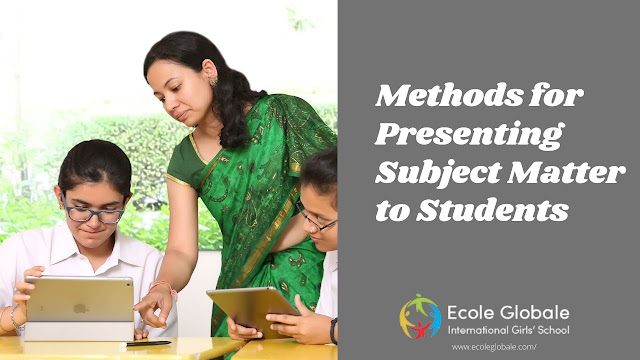The word educate comes from Latin, which means "to observe, to rise, and to nourish, to train." To educate is an energetic enterprise. As compared to the word teach comes from German, which means "show, declare, warn, persuade." To teach may be a more passive activity.
The distinction between these words, educate and teach, has resulted in many various educational ways, some more active and a few more passive. The teacher has the choice to settle on one too with success deliver content.
In selecting an energetic or passive tutorial strategy, the teacher should also think about for different factors like subject material, the resources available, the time assigned for the lesson, and even the background of the scholars. What follows may be a list of tutorial ways that may be used to deliver content no matter what grade level or subject material.
The distinction between these words, educate and teach, has resulted in many various educational ways, some more active and a few more passive. The teacher has the choice to settle on one too with success deliver content.
In selecting an energetic or passive tutorial strategy, the teacher should also think about for different factors like subject material, the resources available, the time assigned for the lesson, and even the background of the scholars. What follows may be a list of tutorial ways that may be used to deliver content no matter what grade level or subject material.
Lecture
Lectures are instructor-centered kinds of instructions given to an entire class. Lectures are available many various forms, some more practical than others. The least active type of lecture involves an educator reading from notes or the text without differentiating for student desires. This change the way of learning into a passive activity and students may quickly lose interest.
The lecture is the most used strategy. Writing in "Science Educator" titled "Brain Research: Implications to various Learners" (2005) notes:
"Although teaching continues to be the most widely used methodology in lecture rooms across the country, analysis on the means we learn indicates that teaching isn't invariably very effective."
Some dynamic academics, however, lecture during a more free-form manner by as well as students or providing demonstrations. Some skilled lecturers have the flexibility to have interaction with students using humor or insightful information.
The lecture is commonly coined as "direct instruction" which can be often created into a more active tutorial strategy once it's a part of a mini-lesson. The lecture portion of the mini-lesson is intended during a sequence wherever the teacher initial makes an association with previous lessons. The teacher delivers the subject material using a demonstration or a think-aloud. The lecture part of the mini-lesson is revisited when students have a chance for active practice once the teacher restates the content another time. that's the reason why Ecole globale is best school in dehradun.
Socratic Seminar
To increase engagement, whole-class discussions might take different forms. The Socratic seminar is wherever a tutor asks open-ended queries permitting students to reply and build upon every other thinking. According to boys boarding school in dehradun the Socratic seminar results in additional active learning once,
"...it becomes the student's chance and responsibility to develop habits and skills that are traditionally reserved for the teacher."
One modification to the Socratic Seminar is that the tutorial strategy referred to as the fishbowl. Within the fishbowl, an inner circle of scholars answer queries whereas an outer circle of scholars observes. Within the fishbowl, the trainer participates as a moderator solely.
Jigsaws and Small Teams
The Jigsaw is one modification on group discussion that asks every student to become a professional on a specific topic then share that information by moving from one group to a different. Every student professional then "teaches" the content to the members of every group. All members are responsible for finding out all the content from each other.
This methodology of the debate would work well, as an example, once students have to browse a piece of information in science or social studies and are sharing information to organize for queries posed by the trainer.
Literature circles are another tutorial strategy that capitalizes on active small group discussions. Students answer what they need to browse in structured teams designed to develop independence, responsibility, and possession. Literature circles are often organized around one book or a subject matter using many various texts.
This article is contributed by Ecole Globale International School.

Nice
ReplyDeleteNice
ReplyDeleteHelpful
ReplyDeleteGood
ReplyDelete